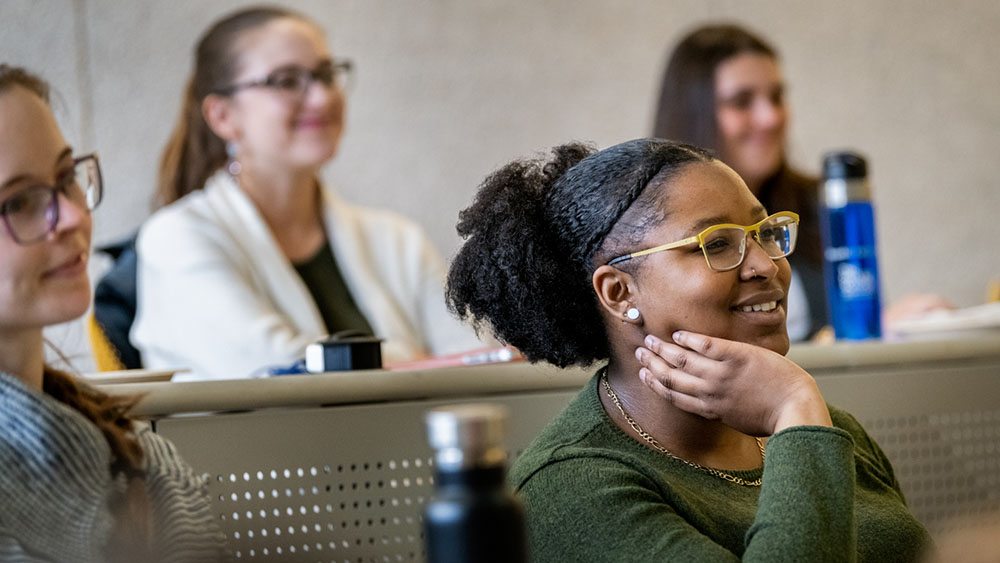
As an MPP program focused on social policy, we prepare students to address social injustice and strive to walk the talk in our program’s curriculum, activities, policies, and culture. We are committed to nurturing belonging and affirmation for every MPP student. Meeting these aspirations is an ongoing priority.
MPP students take a required course on Social Policy and Management Through the Lens of Equity and at least one additional course that explores social injustice, such as immigration policy, criminal legal system disparities, LGBTQ+ justice, disability policy, gender, and more. All MPP students write a policy brief on a topic of their own choosing as part of their capstone course in the last semester before graduation. Recent capstone presentations explored policy solutions related to LGBTQIA+ health disparities, substance use disorder treatment for incarcerated individuals, reforming state tax credits for immigrant families, and improving paid family leave policy.
The core MPP curriculum and concentration courses also explore issues of institutional racism, various forms of oppression and privilege as they impact opportunity and social welfare policy development. Our faculty strive to incorporate readings and texts by scholars of many backgrounds, as well as welcoming leaders and policymakers from many communities into the classroom as guest speakers.
Our faculty aspire to build a classroom environment where all can learn and contribute, while also digging into critical conversations about the power structures that perpetuate injustice. To that end, the MPP program prioritizes training and skill-building opportunities for faculty to develop discussion, facilitation, and instructional techniques that foster a meaningful learning experience for all students.
The Student Experience
Student and alumni input are critical to continuous improvement. The MPP program includes student voices in its governance and programming. The program hosts Town Hall Meetings for each cohort every semester to actively solicit feedback about the program and individual courses. Students also elect representatives to the MPP Student Association (MPPSA). A student chair from each cohort attends monthly program meetings, which integrates student voices and ideas to promote democratic participation in programmatic decision-making.
The MPP faculty and staff strive to create a learning environment where every student feels like they belong in the program, at Heller, and at Brandeis. This requires persistent focus, dedication and continuous improvements. This work is essential to putting into practice our ideal of knowledge advancing social justice and is essential to supporting our students’ abilities to have a significant impact in their policy areas of interest.
